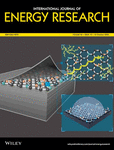Optimized model-based diagnosis approach for hydrogen leakage in hydrogen supply system of fuel cell truck
Funding information: Graduate Research and Innovation Projects of Jiangsu Province, Grant/Award Number: KYCX21_3335
Summary
The hydrogen leakage in hydrogen supply system of fuel cell vehicles is a critical issue that leads to energy loss or even safety accidents. A quick and accurate diagnosis of hydrogen leakage is essential to suppress further leakage. Therefore, an optimized model-based diagnosis approach is proposed to diagnose the hydrogen leakage in hydrogen supply system of fuel cell truck. The simulation model of hydrogen leakage is established. Two novel leakage features are proposed and then trained and tested by applying support vector machines (SVMs) to classify different hydrogen leakage levels. Genetic algorithm (GA) is used to improve the performance of hydrogen leakage detection method in terms of accuracy. The results show that the proposed hydrogen leakage diagnosis method can effectively diagnose different hydrogen leakage levels. Especially for small hydrogen leakage, the proposed approach also shows enough effectiveness. Moreover, the proposed diagnosis method can detect hydrogen leakage both under parking state and continuously changing driving conditions. The proposed diagnosis method has good practicability and can guide the design of alarm system, which is important to save hydrogen energy and improve the reliability of the system.




